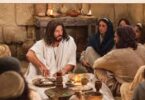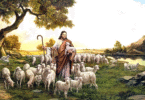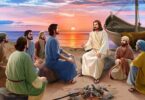22nd Sunday of Ordinary Time (Year B) Scriptures: Deut. 4:1-2, 6-8; Ps. 15:2-5; Jas. 1:17-18, 21-22, 27; Mk. 7:1-8, 14-15, 21-23.
Once I was making a study on newly formed religions, and I came across an article on the “nones” or “irreligious” religion and they do not believe in God. In the recent worldwide survey, 16% of the population have declared themselves that they are not affiliated with any religion. Once, while on a train journey, I met a man who identified himself as “none”.
He endorsed the belief of Sigmund Freud who had said, “Religion belonged to the infancy of humanity. Now that humanity has come of age, it should be left behind.” He believed in the fact that religion should be set free and only then humanity will flourish. I began to realise that he was greatly influenced by the teaching on the non-existence of God. One of the reasons for the growth of “nones” is the present situation in the world. The world is divided in the name of religion.
Our religious beliefs have led to violence. As a result, we are witnessing bloodshed, rapes, and atrocities against minorities. People are hunted out of the country because of their religious beliefs. This is a common phenomenon in different parts of the world. The people who suffer often look for an option. They believe that humanity comes before religion. An innocent man who was listening to our conversation on the train asked me, what comes first, humanity or religion?
Today’s liturgy answers this very question. All the readings highlight the meaning of religion. The first reading from the book of Deuteronomy gives us Moses’ sermon to the people of Israel on the law of God. The word which is used in Hebrew for laws is halakha. It literally means the way of walking. The Jewish laws guided not only their religious practices and beliefs but also their day to day life.
Some Jews also believed that the law existed before the creation. It was in the bosom of God. It helped God in creating the universe. Therefore, the purpose of the law was not meant to burden the people but to help them in keeping the relationship with God. They were told to remain faithful to God’s covenant. It would help them to remain as one nation.
The neighbouring nations would marvel at the graciousness of God being close to them. Israel became the model to all nations. It would be a blessing to them. It is not a wonder that the people of Israel centred their lives on the law because they believed that the law gave them life. They were told not to add or subtract anything from these laws because God had himself given to them (Deut. 4:2).
Over the centuries, the purpose of laws was forgotten. The Pharisees and the scribes had made multiple laws out of the ten commandments. According to the Talmud (Oral Torah), there are 613 mitzvot (commandments) in the Torah, 248 are positive (you shall) and 365 are negative (you shall not).
The Pharisees and the scribes insisted on following them. They taught the law but did not practice the most important parts of the law i.e. justice, mercy and faithfulness to God. They observed the minor laws on the tithe of spices such as mint, dill and cumin. (Mt. 23:23) They exhibited that they were followers of the law but in fact they had put on a mask of righteousness.
However, in today’s Gospel (Mt. 23:27-29), Jesus condemned all such religious practices. Jesus points to the hypocrisy of Pharisees and the scribes; the hand washing is described in the Gospel as ceremonial cleaning. It means to say: they first wash their hands then they perform rituals to make them spiritually clean: they even had a prayer to be said. It was also a mandate for the priests to wash their hands and feet prior to entering into the sanctuary (Ex. 30:19). The Pharisees and scribes had burdened people with priestly rituals and these trivial laws were made by the rabbis. Jesus condemned such burdensome laws and regulations that made people’s lives difficult.
Jesus pointed out the hypocrisy of Pharisees and scribes for giving importance to trivial things and keeping away from the most important thing of their lives i.e. God. They were supposed to follow God’s commandments but they gave importance to the commandments of men. When we make this mistake then we see the conflict between humanity and religion.
True religion lives in harmony with humanity. The readings of the day give us a glimpse of true religion. During the time of Moses, God gave the law to the people of Israel that they may live in harmony. The essence of the law called them to love God and their neighbour. Jesus too came to fulfill the law and the prophets (Mt. 5:17). He went about doing good; He interpreted the entire law and prophets as the love of God and love of neighbour. The apostles also preached the same. James, the apostle tells us in his epistle to not only listen to the Word of God but also become the doers of the Word.
The faith in Christ should be reflected in works. He calls us to help the orphans and widows in their distress. This is true religion.







